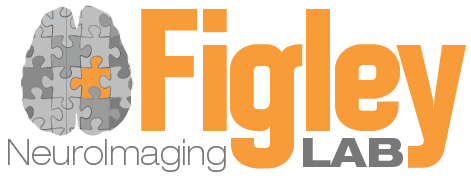Lab Opportunities
Graduate Students
Masters (MSc) and Doctoral (PhD) students in the lab can be admitted through either the Department of Physiology, or the Biomedical Engineering Graduate Program. All applicants must have completed, or be in the process of completing, a 4-year undergraduate degree in:
i) Health Sciences with a strong quantitative focus (e.g., biochemistry, neuroscience, physiology, etc.);
ii) Natural Sciences (e.g., biology, chemistry, computer science, physics, etc.); or
iii) Engineering (biomedical, chemical, electrical and/or computer,etc.).
Given the number of applications that we have received lately, prospective students should have a GPA of at least 4.0 on the Canadian 4.5 scale (equivalent to a US GPA of 3.7 on the 4.0 scale), and prior work or research experience to be competitive for admission to the lab. International students who are from countries where the primary language is not English – regardless of the language of their instruction – will also require a minimum TOEFL iBT score of 100 out of 120 (equivalent to a TOEFL CBT of 250 out of 300, a TOEFL PBT of 600 out of 677, or an IELTS score of 7.5 out of 9.0). Finally, prospective students should familiarize themselves with the Physiology and Biomedical Engineering Graduate Program admission requirements to make sure that all of the criteria are (or will be) met before contacting us.
Please note that all students in the lab are paid a competitive stipend that covers tuition and living expenses. However, while lab-based funding for graduate study is sometimes available, students who are eligible for scholarships (see below) will be strongly encouraged to apply after talking to the lab director about potential projects. If you do not receive a fellowship, this does not preclude acceptance to the lab; however, applying for these funds is a good indicator of your commitment to joining the laboratory.
If you meet the above criteria and are interested in applying to join the lab, please email Chase Figley to introduce yourself, your previous research experience, and discuss how training in the Figley NeuroImaging Lab fits with your long-term goals. Please mention explicitly which program you are interested in applying through (MSc vs. PhD, and Physiology vs. BME) and remember to attach your CV, all unofficial transcripts, and your TOEFL/IELTS scores or certificate (when appropriate).
Finally, please make sure that your email and all of the supporting documents are written in your own words! For example, do not use a professional writing service or plagiarize examples from other cover letters on the Internet, as these may actually negatively impact your application. If you write sincerely and in your own style, we will review your entire application and get back to you…and, particularly if you are an international student, we would rather hear from you in your own words – even if your application contains a few spelling and grammar mistakes.
Internal funding opportunities (for Canadian or International Students):
University of Manitoba (UofM): Graduate Fellowship
University of Manitoba (UofM): Manitoba Graduate Scholarship
Provincial funding opportunities (for Canadian or International Students):
Manitoba Health Research Council (MHRC): Graduate Studentships
Federal funding opportunities (Note: for Canadian citizens or permanent residents only):
Tri-Counsel Canada Master’s Scholarships
Canadian Institutes of Health Research (CIHR): Doctoral Scholarships
National Science and Engineering Research Counsel (NSERC): Doctoral Scholarships
Postdoctoral Fellows
All members of the lab have strong foundations in natural sciences, health sciences and/or engineering. We are also generally interested in research that incorporates new method development, as well as the applications of these methods to help tackle complex neuroscientific problems. For examples about the kinds of projects that we are involved in, please take a look at our publications and the descriptions of the research projects that we are currently pursuing.
We are always interested in hearing from potential postdoctoral fellows. However, the trick in these situations is to find funding, which is not always straight forward and may require advanced notice to submit grant applications, etc. Therefore, anyone who is interested in doing a fellowship in the lab should contact Chase Figley (with a CV, research statement, and the contact information for three references) as soon as possible to discuss potential projects and grant opportunities.
Federal funding opportunities (Note: for Canadian citizens or permanent residents only):
Canadian Institutes of Health Research (CIHR): Postdoctoral Fellowships
Natural Sciences and Engineering Research Council of Canada (NSERC): Postdoctoral Fellowships
Provincial funding opportunities (for Canadian or International students):
Manitoba Health Research Council (MHRC): Postdoctoral Fellowships
Manitoba Health Research Council (MHRC): Clinical Fellowships
